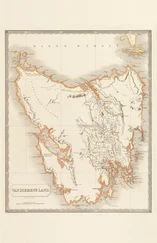Joshua Giddings - The Exiles of Florida
Здесь есть возможность читать онлайн «Joshua Giddings - The Exiles of Florida» — ознакомительный отрывок электронной книги совершенно бесплатно, а после прочтения отрывка купить полную версию. В некоторых случаях можно слушать аудио, скачать через торрент в формате fb2 и присутствует краткое содержание. Жанр: foreign_antique, foreign_prose, на английском языке. Описание произведения, (предисловие) а так же отзывы посетителей доступны на портале библиотеки ЛибКат.
- Название:The Exiles of Florida
- Автор:
- Жанр:
- Год:неизвестен
- ISBN:нет данных
- Рейтинг книги:5 / 5. Голосов: 1
-
Избранное:Добавить в избранное
- Отзывы:
-
Ваша оценка:
- 100
- 1
- 2
- 3
- 4
- 5
The Exiles of Florida: краткое содержание, описание и аннотация
Предлагаем к чтению аннотацию, описание, краткое содержание или предисловие (зависит от того, что написал сам автор книги «The Exiles of Florida»). Если вы не нашли необходимую информацию о книге — напишите в комментариях, мы постараемся отыскать её.
The Exiles of Florida — читать онлайн ознакомительный отрывок
Ниже представлен текст книги, разбитый по страницам. Система сохранения места последней прочитанной страницы, позволяет с удобством читать онлайн бесплатно книгу «The Exiles of Florida», без необходимости каждый раз заново искать на чём Вы остановились. Поставьте закладку, и сможете в любой момент перейти на страницу, на которой закончили чтение.
Интервал:
Закладка:
Joshua R. Giddings
The Exiles of Florida / or, The crimes committed by our government against the Maroons, who fled from South Carolina and other slave states, seeking protection under Spanish laws
“I, as commander of the army, pledged the national faith that they should remain under the protection of the United States.”
GENERAL JESSUP.INTRODUCTION
DISCARDING that code of morals which teaches the suppression of truth, for the purpose of upholding the honor, either of the Government, or of the individuals who wield its administration, the Author of the following work has endeavored to give a faithful record of those interesting events which appear directly connected with the Exiles of Florida.
Torn from their native land, their friends and homes, they were sold in the markets of Carolina and Georgia. Feeling the hand of oppression bearing heavily upon them, they fled to Florida, and, under Spanish laws, became free. Holding lands of the Spanish Crown, they became citizens of that Territory, entitled to protection. To regain possession of their truant bondmen, Georgia made war upon Florida, but failed to obtain her object.
At a time of profound peace, our army, acting under the direction of the Executive, invaded Florida, murdered many of these free men, and brought others to the United States and consigned them to slavery. An expensive and bloody war followed; but failing to capture more of the Exiles, our army was withdrawn.
This war was followed by diplomatic efforts. Florida was purchased; treaties with the Florida Indians were made and violated; gross frauds were perpetrated; dishonorable expedients were resorted to, and another war provoked. During its protracted continuance of seven years, bribery and treachery were practiced towards the Exiles and their allies, the Seminole Indians; flags of truce were violated; the pledged faith of the nation was disregarded. By these means the removal of the Exiles from Florida was effected. After they had settled in the Western Country, most of these iniquities were repeated, until they were driven from our nation and compelled to seek an asylum in Mexico.
Men who wielded the influence of Government for the consummation of these crimes, assiduously labored to suppress all knowledge of their guilt; to keep facts from the popular mind; to falsify the history of current events, and prevent an exposure of our national turpitude.
The object of this work is to meet that state of circumstances; to expose fraud, falsehood, treachery, and other crimes of public men, who have prostituted the powers of Government to the perpetration of murders, at the contemplation of which our humanity revolts.
The Author has designed to place before the public a faithful record of events appropriately falling within the purview of the proposed history; he has endeavored, as far as possible, to do justice to all concerned. Where the action of individuals is concerned, he has endeavored to make them speak for themselves, through official reports, orders, letters, or written evidences from their own hands; and he flatters himself that he has done no injustice to any person.
CHAPTER I.
CIRCUMSTANCES ATTENDING THE EARLY HISTORY OF SLAVERY IN THE COLONIES
Settlement of Florida – Boundaries of Carolina – Enslaving Indians – They flee from their Masters – Africans follow the example – Spanish policy in regard to Fugitive Slaves – Carolina demands the surrender of Exiles – Florida refuses – Colony of Georgia established – Its object – Exiles called Seminoles – Slavery Introduced Into Georgia – Seminole Indians separate from Creeks – Slaves escape from Georgia – Report of Committee of Safety – Report of General Lee – Treaty of Augusta – Treaty of Galphinton – Singular conduct of Georgia – War between Creeks and Georgia – Resolution of Congress – Treaty of Shoulderbone – Hostilities continue – Georgia calls on United States for assistance – Commissioners sent to negotiate Treaty – Failure – Col. Willett’s mission – Chiefs, head men and Warriors repair to New York – Treaty formed – Secret article – Extraordinary covenants.
Florida was originally settled by Spaniards, in 1558. They were the first people to engage in the African Slave trade, and sought to supply other nations with servants from the coast of Guinea. The Colonists held many slaves, expecting to accumulate wealth by the unrequited toil of their fellow-man.
Carolina by her first and second charters claimed a vast extent of country, embracing St. Augustine and most of Florida. This conflict of jurisdiction soon involved the Colonists in hostilities. The Carolinians also held many slaves. Profiting by the labor of her servants, the people sought to increase their wealth by enslaving the Indians who resided in their vicinity. Hence in the early slave codes of that colony we find reference to “negro and other slaves.”
When the boundaries of Florida and South Carolina became established, the Colonists found themselves separated by the territory now constituting, the State of Georgia, at that time mostly occupied by the Creek Indians.
The efforts of the Carolinians to enslave the Indians, brought with them the natural and appropriate penalties. The Indians soon began to make their escape from service to the Indian country. This example was soon followed by the African slaves, who also fled to the Indian country, and, in order to secure themselves from pursuit, continued their journey into Florida.
We are unable to fix the precise time when the persons thus exiled constituted a separate community. Their numbers had become so great in 1736, that they were formed into companies, and relied on by the Floridians as allies to aid in the defense of that territory. They were also permitted to occupy lands upon the same terms that were granted to the citizens of Spain; indeed, they in all respects became free subjects of the Spanish crown. Probably to this early and steady policy of the Spanish Government, we may attribute the establishment and continuance of this community of Exiles in that territory. 1 1 Vide Bancroft’s and Hildreth’s Histories of the United States.
A messenger was sent by the Colonial Government of South Carolina to demand the return of those fugitive slaves who had found an asylum in Florida. The demand was made upon the Governor of St. Augustine, but was promptly rejected. This was the commencement of a controversy which has continued for more than a century, involving our nation in a vast expenditure of blood and treasure, and it yet remains undetermined.
The constant escape of slaves, and the difficulties resulting therefrom, constituted the principal object for establishing a free colony between South Carolina and Florida, which was called Georgia. 2 2 Vide both Histories above cited.
It was thought that this colony, being free, would afford the planters of Carolina protection against the further escape of their slaves from service.
These Exiles were by the Creek Indians called “Seminoles,” which in their dialect signifies “runaways,” and the term being frequently used while conversing with the Indians, came into almost constant practice among the whites; and although it has now come to be applied to a certain tribe of Indians, yet it was originally used in reference to these Exiles long before the Seminole Indians had separated from the Creeks.
Some eight years after the Colony of Georgia was first established, efforts were made to introduce Slavery among its people. The ordinary argument, that it would extend the Christian religion, was brought to bear upon Whitfield and Habersham, and the Saltzbergers and Moravians, until they consented to try the experiment, and Georgia became thenceforth a Slaveholding Colony, whose frontier bordered directly upon Florida; bringing the slaves of her planters into the very neighborhood of those Exiles who had long been free under Spanish laws.
Читать дальшеИнтервал:
Закладка:
Похожие книги на «The Exiles of Florida»
Представляем Вашему вниманию похожие книги на «The Exiles of Florida» списком для выбора. Мы отобрали схожую по названию и смыслу литературу в надежде предоставить читателям больше вариантов отыскать новые, интересные, ещё непрочитанные произведения.
Обсуждение, отзывы о книге «The Exiles of Florida» и просто собственные мнения читателей. Оставьте ваши комментарии, напишите, что Вы думаете о произведении, его смысле или главных героях. Укажите что конкретно понравилось, а что нет, и почему Вы так считаете.












